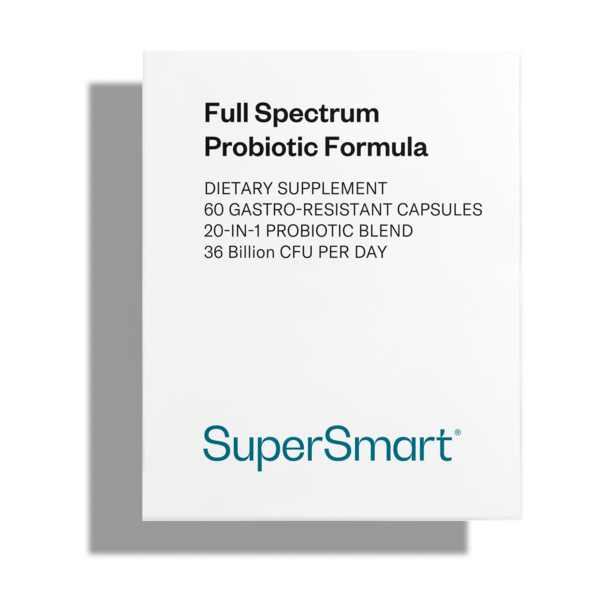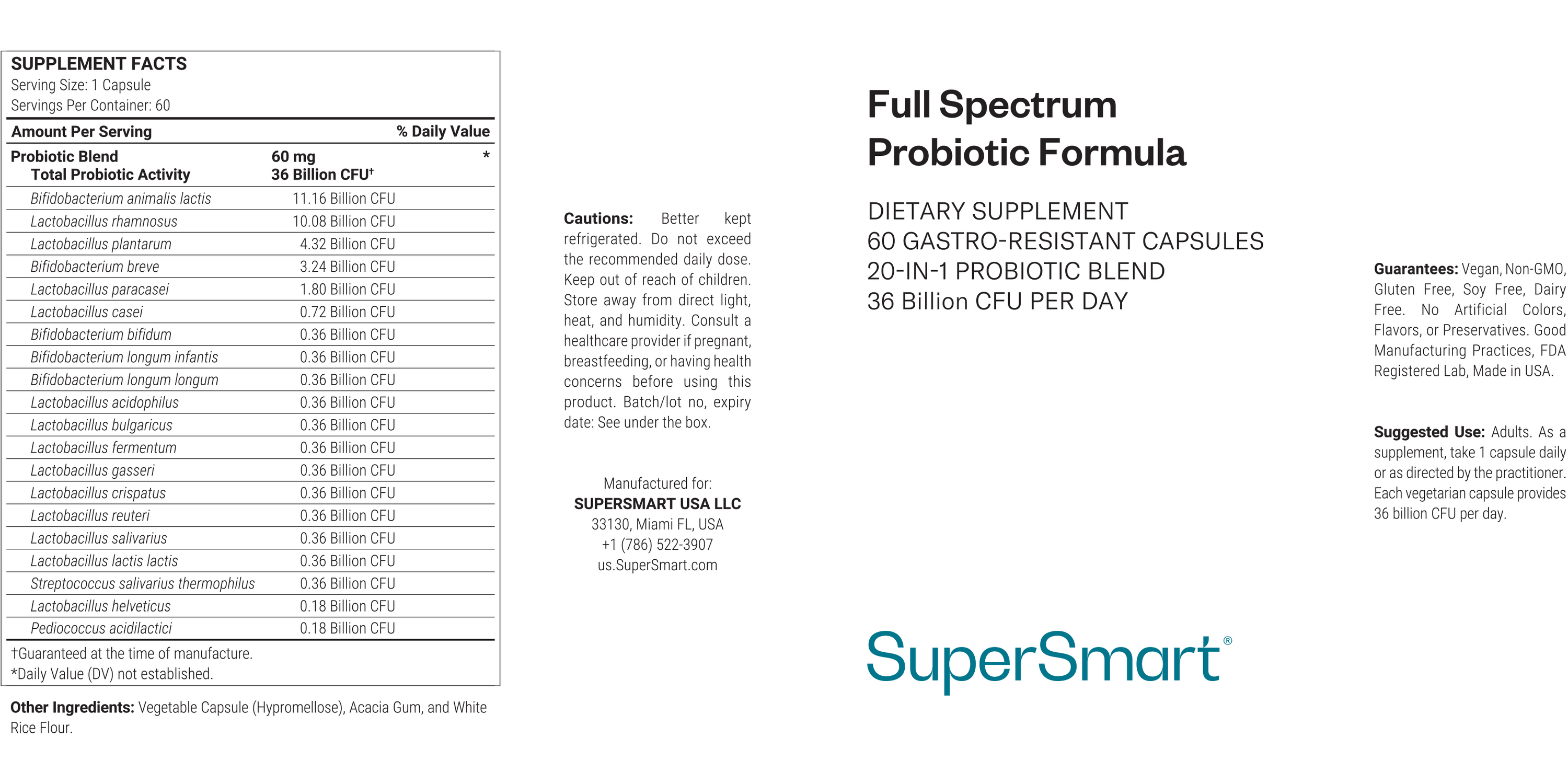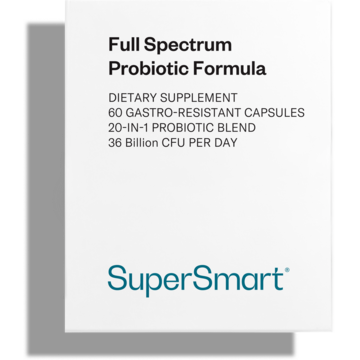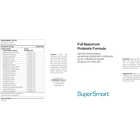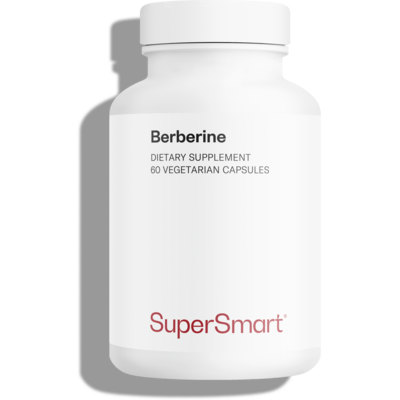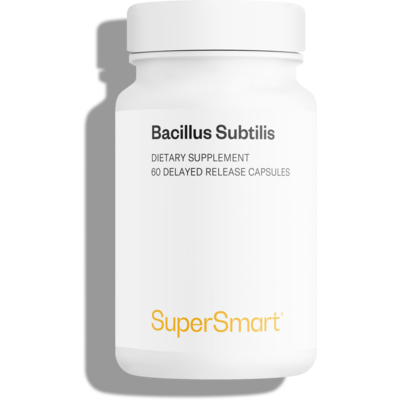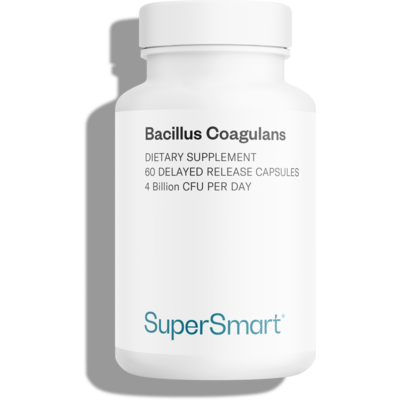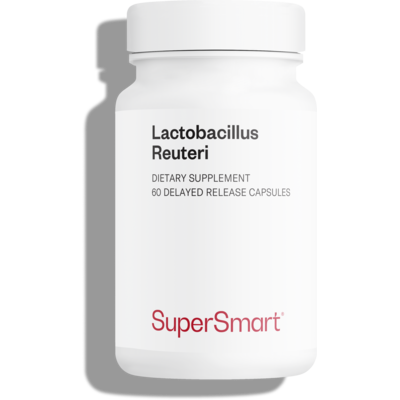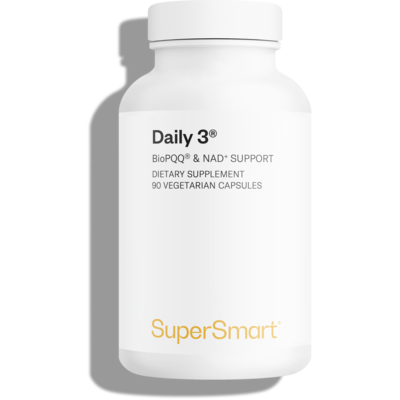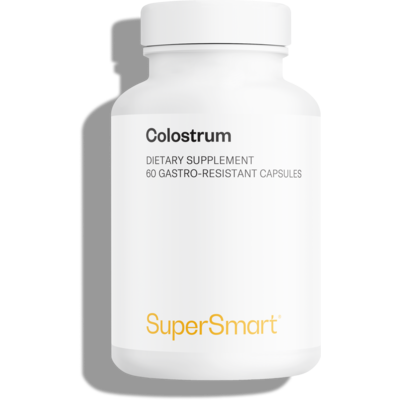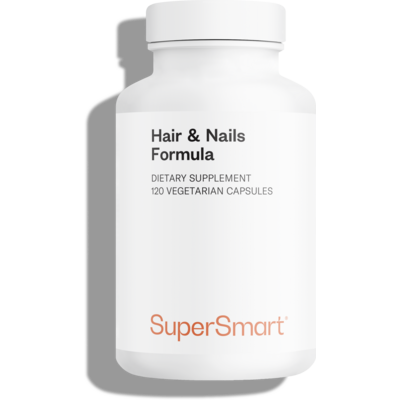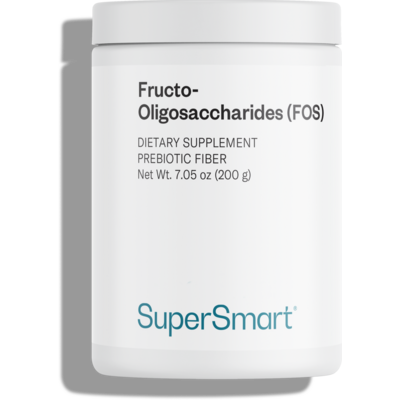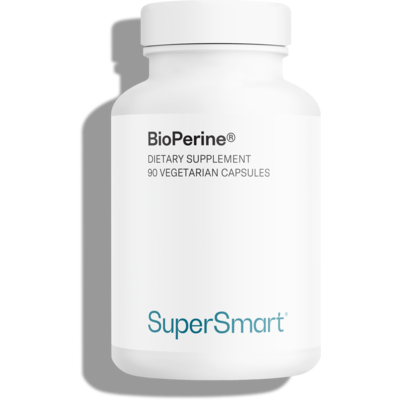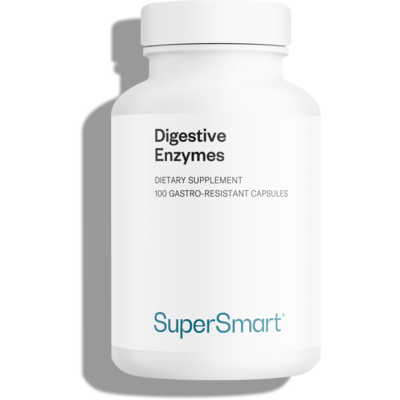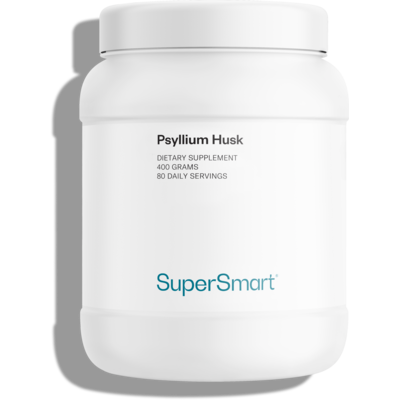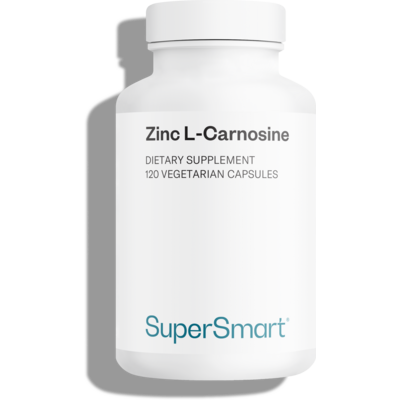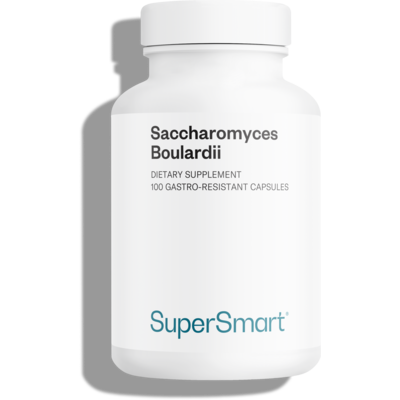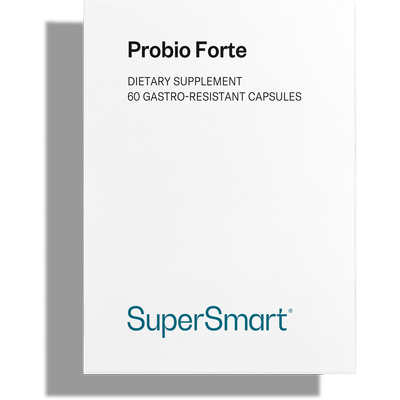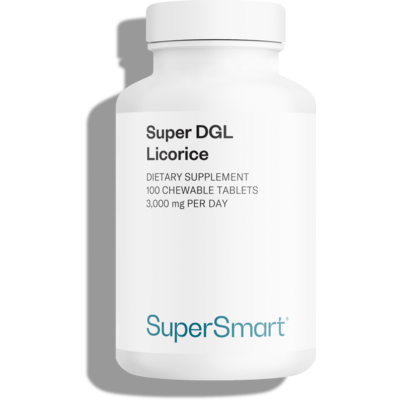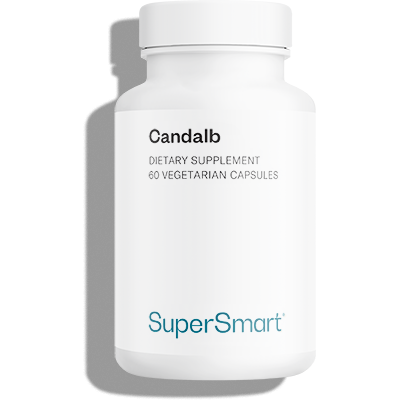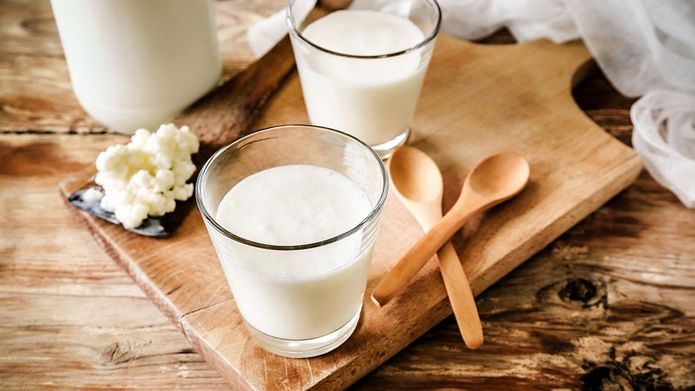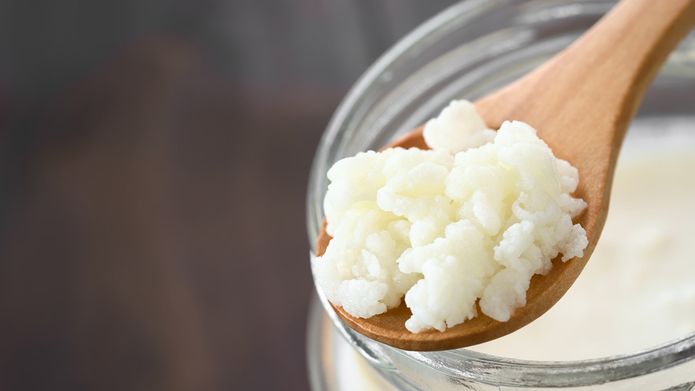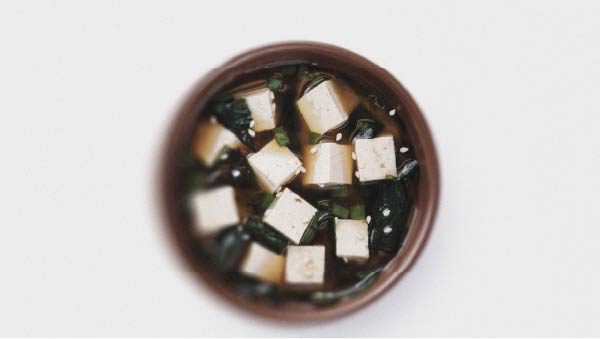Our Full Spectrum Probiotic Formula supplement is a comprehensive microbiotic blend that combines 20 carefully selected strains to help support gut flora and microbiome diversity.*
With a dose of 36 billion CFU per day, this multi-strain blend is designed to help maintain digestive balance, microbial variety, and overall well-being.*
Full Spectrum Probiotic Formula is part of our Gastrointestinal Health category of supplements.
Potential Benefits of Full Spectrum Probiotic Formula*
This broad-spectrum approach should deliver a large range of beneficial microorganisms, which may offer a holistic way to support gut ecology.*
Each capsule brings together 20 complementary strains of Lactobacillus, Bifidobacterium, and other probiotics that may work synergistically to help maintain digestive function, immune response, and microbiome resilience.*
Choosing a multi-strain over a single-strain probiotic may possibly offer broader compatibility with the body’s microbial ecosystem.* A full-spectrum approach such as this one is formulated in an attempt to help support a more diverse and resilient gut environment, which could play a role in overall wellness.*
What is in Full Spectrum Probiotic Formula?*
This supplement features a balanced ratio of 20 research-backed probiotic strains, each selected for their potential contributions to gut harmony and microbiome diversity:*
- Bifidobacterium animalis lactis (11.16*109 CFU) is a species of bifidobacteria originally identified in 1997 that may be found in dairy-based sources.*
- Lactobacillus rhamnosus (10.08*109 CFU) is a supposedly widely researched lactic acid bacteria and probiotic that may help maintain balance within the gut microbiota and help sustain immune response and skin.*
- Lactobacillus plantarum (4.32*109 CFU) is a lactobacillus that might be commonly present in fermented foods such as sauerkraut and in the human digestive tract.* Possibly appreciated for its presumed hydrating, inflammatory response, and neuroprotective properties, it may also be recognized for its potential versatility in microbiota support.*
- Bifidobacterium breve (3.24*109 CFU) is an elongated bacillus in the form of a small chain which may be known for its adaptability in the intestinal environment and lower intestinal pH.*
- Lactobacillus paracasei (1.8*109 CFU) is a lactic bacteria that seems to often be used in the fermentation of dairy products and studied for its potential probiotic properties.*
- Lactobacillus casei (0.72*109 CFU) is a rod-shaped bacteria that appears to be found in fermented dairy products such as milk and cheese.* It may help support immunity, mood, skin, digestive well-being, and overall vitality.*
- Bifidobacterium bifidum (0.36*109 CFU) is a bifidobacteria strain which could naturally be found in the human gut and be used as a probiotic.* It may also be studied for its potential role in microbiota diversity and immunity.*
- Bifidobacterium longum infantis (0.36*109 CFU) is a Y-shaped lactic acid bacteria that may be found in the human gut and used as a probiotic with a possible role in digestive balance and microbiome modulation.*
- Bifidobacterium longum longum (0.36*109 CFU) is a lactic ferment that may be associated with maintaining a balanced microbiota and an already healthy gut environment.*
- Lactobacillus acidophilus (0.36*109 CFU) is a microorganism which seems to be found in fermented foods such as milk or miso.* It might often be linked to supporting nutrient absorption such as vitamin K and skin appearance.*
- Lactobacillus delbrueckii bulgaricus (0.36*109 CFU) is a lactic acid-producing bacteria which appears to be commonly involved in dairy fermentation.* It may help with converting glucose into lactate.*
- Lactobacillus fermentum (0.36*109 CFU) is part of the Lactobacillaceae family that may naturally produce lactic acid in the body.*
- Lactobacillus gasseri (0.36*109 CFU) is a naturally occurring microorganism that could be present in breast milk as well as in oral and digestive flora.* It appears to be studied for its potential role in weight management, gut support, and immunity.*
- Lactobacillus crispatus (0.36*109 CFU) may typically be found in the vaginal microbiota, and might be noted for contributing to microbial diversity.*
- Lactobacillus reuteri (0.36*109 CFU) is a lactic bacteria that may be identified in certain foods such as sourdough starter, cheese, or sausage and which could figure among the first strains to colonize the human gut.* It might be beneficial for digestion and lipid balance.*
- Lactobacillus salivarius (0.36*109 CFU) is a bacteria which may commonly be found in the digestive tract and potentially associated with maintaining gut flora and immune response balance.*
- Lactococcus lactis lactis (0.36*109 CFU) is a type of lactic bacteria which might be sourced from certain plant-source products such as grains and beans.*
- Streptococcus salivarius thermophilus appears to be a traditional starter culture which may be frequently used in yogurt and dairy fermentations.*
- Lactobacillus helveticus (0.18*109 CFU) is a rod-shaped bacteria that might be recognized for its possible strong adhesion to intestinal cells and potential microbiota and immune response modulation.*
- Pediococcus acidilactici (0.18*109 CFU) is a probiotic strain that could commonly be found in fermented vegetables, dairy products, and meat.* It seems to be used as a probiotic and valued for its potential resilience and broad digestive compatibility.*
WARNINGS
Do not exceed the recommended daily dose. This product is a nutritional supplement and should not be used as a substitute for a varied and balanced diet or a healthy lifestyle.
STORAGE
Store in a cool, dry place away from direct sunlight, heat, and humidity.
Keep out of reach of children.
PREGNANCY AND MEDICAL CONDITIONS
If you are pregnant, breastfeeding, or have any medical conditions, consult your healthcare provider before using this product.
SUPPLEMENT INTERACTIONS
Consult your healthcare provider before use, especially if you are taking any medications or other supplements as there may be potential interactions.
*These statements have not been evaluated by the Food and Drug Administration. This product is not intended to diagnose, treat, cure, or prevent any disease.
Serving Size: 1 Capsule
Servings Per Container: 60 |
Amount Per Serving |
| Probiotic Blend |
60 mg* |
| Total Probiotic Activity |
36 Billion CFU† |
| Bifidobacterium animalis lactis |
11.16 Billion CFU |
| Lactobacillus rhamnosus |
10.08 Billion CFU |
| Lactobacillus plantarum |
4.32 Billion CFU |
| Bifidobacterium breve |
3.24 Billion CFU |
| Lactobacillus paracasei |
1.80 Billion CFU |
| Lactobacillus casei |
0.72 Billion CFU |
| Bifidobacterium bifidum |
0.36 Billion CFU |
| Bifidobacterium longum infantis |
0.36 Billion CFU |
| Bifidobacterium longum longum |
0.36 Billion CFU |
| Lactobacillus acidophilus |
0.36 Billion CFU |
| Lactobacillus bulgaricus |
0.36 Billion CFU |
| Lactobacillus fermentum |
0.36 Billion CFU |
| Lactobacillus gasseri |
0.36 Billion CFU |
| Lactobacillus crispatus |
0.36 Billion CFU |
| Lactobacillus reuteri |
0.36 Billion CFU |
| Lactobacillus salivarius |
0.36 Billion CFU |
| Lactobacillus lactis lactis |
0.36 Billion CFU |
| Streptococcus salivarius thermophilus |
0.36 Billion CFU |
| Lactobacillus helveticus |
0.18 Billion CFU |
| Pediococcus acidilactici |
0.18 Billion CFU |
†Guaranteed at the time of manufacture.
*Daily Value (DV) not established.
Other Ingredients: Vegetable Capsule (Hypromellose), Acacia Gum, and White Rice Flour.
|
Serving size: Take 1 capsule per day. Each gastro-resistant capsule provides 36 billion CFU.
Servings per container: 60
Storage: Better kept refrigerated.
Cautions: For adults only. Do not exceed the recommended daily dose. Keep out of reach of children. Consult a healthcare provider before taking this supplement and if you are pregnant, breastfeeding, or having health concerns.*
This product is a dietary supplement and should not be used as a substitute for a varied, balanced diet and a healthy lifestyle.
- Sheih YH, Chiang BL, Wang LH, Liao CK, Gill HS. … effects in … subjects following dietary consumption of the lactic acid bacterium Lactobacillus rhamnosus HN001. J Am Coll Nutr. 2001 Apr;20(2 Suppl):149-56. doi: 10.1080/07315724.2001.10719027. PMID: 11349938.
- Cheon MJ, Lee NK, Paik HD. … Lactobacillus plantarum 200655 Isolated from Kimchi …. Probiotics … Proteins. 2021 Jun;13(3):788-795. doi: 10.1007/s12602-020-09740-w. Epub 2021 Jan 17. PMID: 33454870.
- O'Callaghan A, van Sinderen D. Bifidobacteria and Their Role as Members of the Human Gut Microbiota. Front Microbiol. 2016;7:925. Published 2016 Jun 15. doi:10.3389/fmicb.2016.00925
- Yan F, Polk DB. Probiotics and immune health. Curr Opin Gastroenterol. 2011;27(6):496-501. doi:10.1097/MOG.0b013e32834baa4d
- Marotta A, Sarno E, Del Casale A, et al. Effects of Probiotics on … . Front Psychiatry. 2019;10:164. Published 2019 Mar 27. doi:10.3389/fpsyt.2019.00164
- Saito Y, Mihara T, Maruyama K, Saito J, Ikeda M, Tomonaga A, Kumagai T. Effects of intake of Lactobacillus casei subsp. casei 327 on … : a randomized, double-blind, placebo-controlled, parallel-group study in women. Biosci Microbiota Food Health. 2017;36(3):111-120. doi: 10.12938/bmfh.16-031. Epub 2017 Apr 14. PMID: 28748132; PMCID: PMC5510156.
- Muñoz JA, Chenoll E, Casinos B, Bataller E, Ramón D, Genovés S, Montava R, Ribes JM, Buesa J, Fàbrega J, Rivero M. Novel probiotic Bifidobacterium longum subsp. infantis CECT 7210 strain active …. Appl Environ Microbiol. 2011 Dec;77(24):8775-83. doi: 10.1128/AEM.05548-11. Epub 2011 Oct 14. PMID: 22003027; PMCID: PMC3233071.
- Escribano J, Ferré N, Gispert-Llaurado M, Luque V, Rubio-Torrents C, Zaragoza-Jordana M, Polanco I, Codoñer FM, Chenoll E, Morera M, Moreno-Muñoz JA, Rivero M, Closa-Monasterolo R. Bifidobacterium longum subsp infantis CECT7210-supplemented formula …: a randomized controlled trial. Pediatr Res. 2018 Jun;83(6):1120-1128. doi: 10.1038/pr.2018.34. Epub 2018 May 2. PMID: 29538368.
- Zhou C, Fang X, Xu J, Gao J, Zhang L, Zhao J, Meng Y, Zhou W, Han X, Bai Y, Li Z, Zou D. Bifidobacterium longum …. Gut …. 2020 Nov 9;12(1):1782156. doi: 10.1080/19490976.2020.1782156. Epub 2020 Jun 25. PMID: 32584650; PMCID: PMC7524277.
- María Remes Troche J, Coss Adame E, Ángel Valdovinos Díaz M, et al. Lactobacillus acidophilus LB: …. Therap Adv Gastroenterol. 2020;13:1756284820971201. Published 2020 Nov 24. doi:10.1177/1756284820971201
- Mazloom K, Siddiqi I, Covasa M. Probiotics: How Effective Are They …?. Nutrients. 2019;11(2):258. Published 2019 Jan 24. doi:10.3390/nu11020258
- Jones ML, Martoni CJ, Parent M, Prakash S. … efficacy of a microencapsulated bile salt hydrolase-active Lactobacillus reuteri NCIMB 30242 yoghurt formulation in … adults. Br J Nutr. 2012 May;107(10):1505-13. doi: 10.1017/S0007114511004703. Epub 2011 Nov 9. PMID: 22067612.
- Sierra S, Lara-Villoslada F, Sempere L, Olivares M, Boza J, Xaus J. … effects of daily oral administration of Lactobacillus salivarius CECT5713 to healthy adults. Anaerobe. 2010 Jun;16(3):195-200. doi: 10.1016/j.anaerobe.2010.02.001. Epub 2010 Feb 14. PMID: 20159049.
- Taverniti V, Guglielmetti S. … Properties of Lactobacillus helveticus. Front Microbiol. 2012;3:392. Published 2012 Nov 19. doi:10.3389/fmicb.2012.00392
- Surachat K, Kantachote D, Deachamag P, Wonglapsuwan M. Genomic Insight into Pediococcus acidilactici HN9, a Potential Probiotic Strain Isolated from the Traditional Thai-Style Fermented Beef Nhang. Microorganisms. 2020;9(1):50. Published 2020 Dec 27. doi:10.3390/microorganisms9010050
- Hemarajata P, Versalovic J. Effects of probiotics on gut microbiota: mechanisms of intestinal immunomodulation and neuromodulation. Therap Adv Gastroenterol. 2013;6(1):39-51. doi:10.1177/1756283X12459294
- Olvera-Rosales LB, Cruz-Guerrero AE, Ramírez-Moreno E, et al. Impact of the Gut Microbiota Balance …: The Importance of Consuming Probiotics and Prebiotics. Foods. 2021;10(6):1261. Published 2021 Jun 2. doi:10.3390/foods10061261
- Wieërs G, Belkhir L, Enaud R, et al. How Probiotics Affect the Microbiota. Front Cell Infect Microbiol. 2020;9:454. Published 2020 Jan 15. doi:10.3389/fcimb.2019.00454
- Yan F, Polk DB. Probiotics and immune health. Curr Opin Gastroenterol. 2011;27(6):496-501. doi:10.1097/MOG.0b013e32834baa4d
- Rinninella E, Cintoni M, Raoul P, et al. Food Components and Dietary Habits: Keys for a Healthy Gut Microbiota Composition. Nutrients. 2019;11(10):2393. Published 2019 Oct 7. doi:10.3390/nu11102393
- Childs CE, Calder PC, Miles EA. Diet and Immune Function. Nutrients. 2019;11(8):1933. Published 2019 Aug 16. doi:10.3390/nu11081933
- Besedovsky L, Lange T, Born J. Sleep and immune function. Pflugers Arch. 2012;463(1):121-137. doi:10.1007/s00424-011-1044-0
- Madison A, Kiecolt-Glaser JK. … diet, and the gut microbiota: … nutrition. Curr Opin Behav Sci. 2019;28:105-110. doi:10.1016/j.cobeha.2019.01.011
- Segerstrom SC, Miller GE…. the human immune system: a meta-analytic study of 30 years of inquiry. Psychol Bull. 2004;130(4):601-630. doi:10.1037/0033-2909.130.4.601
- Clauss M, Gérard P, Mosca A, Leclerc M. Interplay Between Exercise and Gut Microbiome in the Context of Human Health and Performance. Front Nutr. 2021;8:637010. Published 2021 Jun 10. doi:10.3389/fnut.2021.637010
- Nieman DC, Wentz LM. The compelling link between physical activity and the body's defense system. J Sport Health Sci. 2019;8(3):201-217. doi:10.1016/j.jshs.2018.09.009
- Stevens Y, Rymenant EV, Grootaert C, et al. The Intestinal … of Citrus Flavanones and Their Effects on … . Nutrients. 2019;11(7):1464. Published 2019 Jun 27. doi:10.3390/nu11071464
- Wachtel-Galor S, Yuen J, Buswell JA, et al. Ganoderma lucidum (Lingzhi or Reishi): A Medicinal Mushroom. In: Benzie IFF, Wachtel-Galor S, editors. Herbal Medicine: Biomolecular and Clinical Aspects. 2nd edition. Boca Raton (FL): CRC Press/Taylor & Francis; 2011. Chapter 9. Available from: https://www.ncbi.nlm.nih.gov/books/NBK92757/
- Lull C, Wichers HJ, Savelkoul HF. … properties of fungal metabolites. Mediators Inflamm. 2005;2005(2):63-80. doi:10.1155/MI.2005.63

